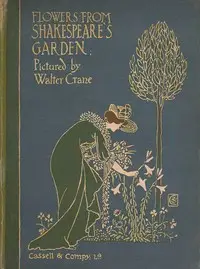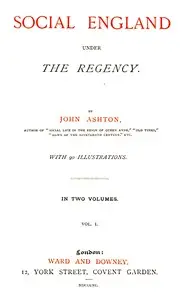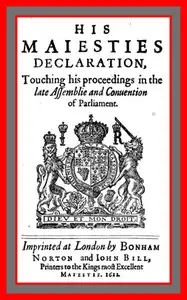"Second Part of King Henry IV" by William Shakespeare is a historical drama that looks at the challenging world of kings and nobles in England. The play follows Prince Henry, also known as Hal, as he grows from a wild young man into someone who can rule a country. A funny but also kind of bad guy named Falstaff shows up a lot, making us laugh but also making us think about what it means to be a good friend. Right from the start, the play uses a character called Rumor to show how unsure everyone is after a big battle won by King Henry IV. Lords like Northumberland and Bardolph talk about what the battle means and what they think about the prince, setting a mood that's both exciting and a little scary as they get ready for more trouble between the king and some angry nobles; through humor and serious moments, the play pulls us into a world of politics and personal fights.

Second Part of King Henry IV
By William Shakespeare
Amidst rebellion and royal duty, a reckless prince must choose between his loyalty to a mischievous friend and the call to become a king.
Summary
About the AuthorWilliam Shakespeare was an English playwright, poet and actor. He is widely regarded as the greatest writer in the English language and the world's pre-eminent dramatist. He is often called England's national poet and the "Bard of Avon". His extant works, including collaborations, consist of some 39 plays, 154 sonnets, three long narrative poems and a few other verses, some of uncertain authorship. His plays have been translated into every major living language and are performed more often than those of any other playwright. Shakespeare remains arguably the most influential writer in the English language, and his works continue to be studied and reinterpreted.
William Shakespeare was an English playwright, poet and actor. He is widely regarded as the greatest writer in the English language and the world's pre-eminent dramatist. He is often called England's national poet and the "Bard of Avon". His extant works, including collaborations, consist of some 39 plays, 154 sonnets, three long narrative poems and a few other verses, some of uncertain authorship. His plays have been translated into every major living language and are performed more often than those of any other playwright. Shakespeare remains arguably the most influential writer in the English language, and his works continue to be studied and reinterpreted.










![The Works of William Shakespeare [Cambridge Edition] [Vol. 8 of 9] by William Shakespeare](https://cdn.a2-host.cloud/fNnX4_uqi59byiaxWj_boYucmlVIJl_yu_C5Q6VFyVQ/rs:fill:215:325:0/g:ce/aHR0cHM6Ly9zcC1hc3NldHMuczMudXMtd2VzdC0wMDQuYmFja2JsYXplYjIuY29tL2Jvb2svNDkwMDgvVGhlX1dvcmtzX29mX1dpbGxpYW1fU2hha2VzcGVhcmVfQ2FtYnJpZGdlX0VkaXRpb25fVm9sXzhfb2ZfOV9jb3Zlci5qcGc.webp)








